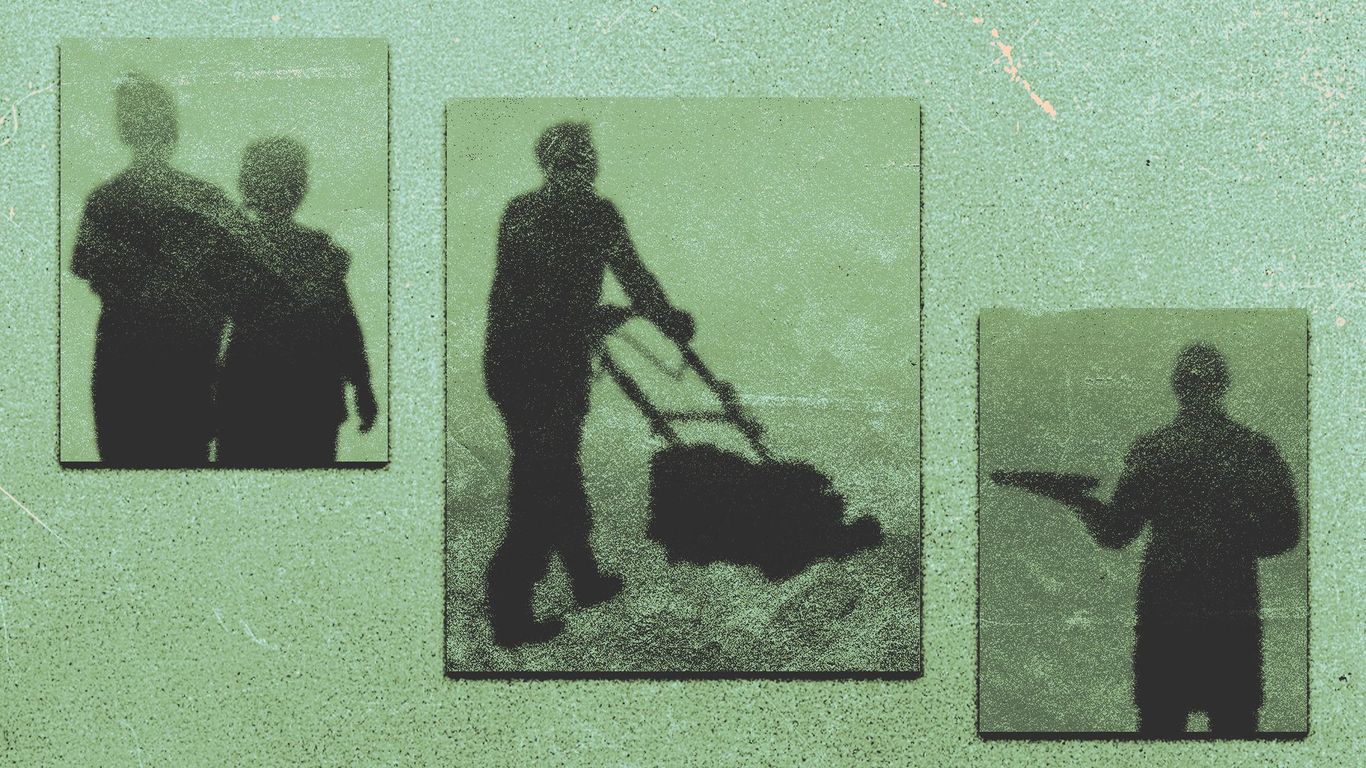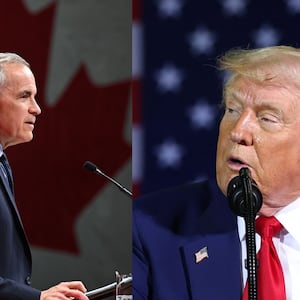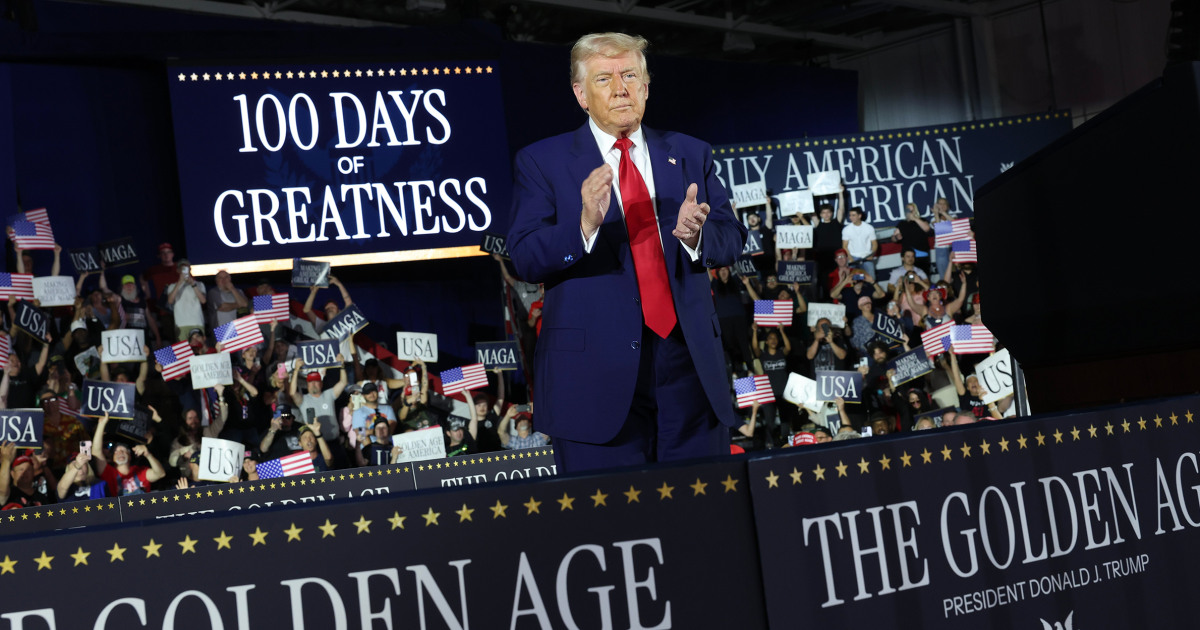Pockets of the U.S. economy — from landscaping to elder care to restaurants — depend on the labor of undocumented immigrants to stay afloat.
But the vast shadow workforce extends beyond them. It includes legal immigrants with work restrictions, like students and asylum seekers.Why it matters: Immigration crackdowns under the Trump administration are spreading fear — causing people to skip work, straining businesses, and leaving families without income.

The latest: Anxiety is rising among undocumented workers after the IRS agreed to share data with ICE, leaving many worried that paying taxes could now be used against them.While President Trump's deportation drive is focused on undocumented immigrants, visa holders can also potentially be deported for working illegally. Short of that, they can be barred from returning to the U.
S. once they leave or denied permanent residency.By the numbers: There are more than 8 million unauthorized immigrants in the workforce, Pew estimates.
And the true number of people working while bending the rules is likely higher than that.“We know that some people on legal, temporary visas work even when it is not permitted, such as people coming as tourists but working for ride share companies or student visa holders getting side jobs off campus as babysitters or in restaurants,” Julia Gelatt of the Migration Policy Institute tells Axios.One prominent example is Elon Musk, who has acknowledged he was in a legal "gray area" when he started a company while in the U.
S. on a student visa.Zoom in: Foreign students have a range of limitations on when and where they can work.
But they often find jobs to cover high tuition costs.Jobs on campus — which are allowed — pay minimum wage or close to it, and there are limits on how many hours per week students can work, an Asian international graduate student at a Boston area university tells Axios. "That wouldn't even cover rent and groceries, let alone tuition.
"Asylum seekers, who must wait at least six months for a work permit, frequently work under the table to make ends meet.Temporary workers also often supplement their primary employment with informal gigs.Now they're weighing whether it’s safe to show up to work.
The stakes: The industries that rely on this shadow workforce include construction, agriculture, hospitality and retail.If those sectors lose workers, “American consumers are going to see higher prices,” says Patricia Campos-Medina, executive director of the Worker Institute at Cornell’s School of Industrial and Labor Relations.Between the lines: Many on the right argue it's high time to start enforcing these rules more rigorously.
Sen. Bernie Moreno (R-Ohio) told Axios he told one business association that was concerned about the economic implications of immigration raids: "'Don't hire illegals' should be your statement." The Trump administration says its crackdown will protect citizens' jobs and safety, though Trump floated creating a path for undocumented farm and hotel workers to work legally at a Cabinet meeting this week.
The uncertainty isn’t just keeping people away from work. It’s already slowing down economic activity in communities with large immigrant populations.“They’re not going out to eat at often, they’re not going shopping as often, they’re delaying medical care, and they’re delaying repairs on the car,” says Richard Gearhart, a labor economist at Cal State-Bakersfield.
“I’m calling this a recessionary event if we really start to see large scale immigration enforcement.”Worker advocates also worry that the heightened uncertainty could make it more difficult to enforce labor standards at work.Employers have more leverage over employees who are working without authorization and could use it to pay them less or deny them benefits, Campos-Medina says.
The bottom line: “These are people who have employers who depend on them and who are playing an important role in our economy,” Gelatt says. “And they could be leaving the workforce in huge numbers.”.
America's shadow economy shrinks due to deportation fears

Pockets of the U.S. economy — from landscaping to elder care to restaurants — depend on the labor of undocumented immigrants to stay afloat.But the vast shadow workforce extends beyond them. It includes legal immigrants with work restrictions, like students and asylum seekers.Why it matters: Immigration crackdowns under the Trump administration are spreading fear — causing people to skip work, straining businesses, and leaving families without income.The latest: Anxiety is rising among undocumented workers after the IRS agreed to share data with ICE, leaving many worried that paying taxes could now be used against them.While President Trump's deportation drive is focused on undocumented immigrants, visa holders can also potentially be deported for working illegally. Short of that, they can be barred from returning to the U.S. once they leave or denied permanent residency.By the numbers: There are more than 8 million unauthorized immigrants in the workforce, Pew estimates. And the true number of people working while bending the rules is likely higher than that.“We know that some people on legal, temporary visas work even when it is not permitted, such as people coming as tourists but working for ride share companies or student visa holders getting side jobs off campus as babysitters or in restaurants,” Julia Gelatt of the Migration Policy Institute tells Axios.One prominent example is Elon Musk, who has acknowledged he was in a legal "gray area" when he started a company while in the U.S. on a student visa.Zoom in: Foreign students have a range of limitations on when and where they can work. But they often find jobs to cover high tuition costs.Jobs on campus — which are allowed — pay minimum wage or close to it, and there are limits on how many hours per week students can work, an Asian international graduate student at a Boston area university tells Axios. "That wouldn't even cover rent and groceries, let alone tuition."Asylum seekers, who must wait at least six months for a work permit, frequently work under the table to make ends meet.Temporary workers also often supplement their primary employment with informal gigs.Now they're weighing whether it’s safe to show up to work.The stakes: The industries that rely on this shadow workforce include construction, agriculture, hospitality and retail.If those sectors lose workers, “American consumers are going to see higher prices,” says Patricia Campos-Medina, executive director of the Worker Institute at Cornell’s School of Industrial and Labor Relations.Between the lines: Many on the right argue it's high time to start enforcing these rules more rigorously.Sen. Bernie Moreno (R-Ohio) told Axios he told one business association that was concerned about the economic implications of immigration raids: "'Don't hire illegals' should be your statement." The Trump administration says its crackdown will protect citizens' jobs and safety, though Trump floated creating a path for undocumented farm and hotel workers to work legally at a Cabinet meeting this week.The uncertainty isn’t just keeping people away from work. It’s already slowing down economic activity in communities with large immigrant populations.“They’re not going out to eat at often, they’re not going shopping as often, they’re delaying medical care, and they’re delaying repairs on the car,” says Richard Gearhart, a labor economist at Cal State-Bakersfield.“I’m calling this a recessionary event if we really start to see large scale immigration enforcement.”Worker advocates also worry that the heightened uncertainty could make it more difficult to enforce labor standards at work.Employers have more leverage over employees who are working without authorization and could use it to pay them less or deny them benefits, Campos-Medina says.The bottom line: “These are people who have employers who depend on them and who are playing an important role in our economy,” Gelatt says. “And they could be leaving the workforce in huge numbers.”















